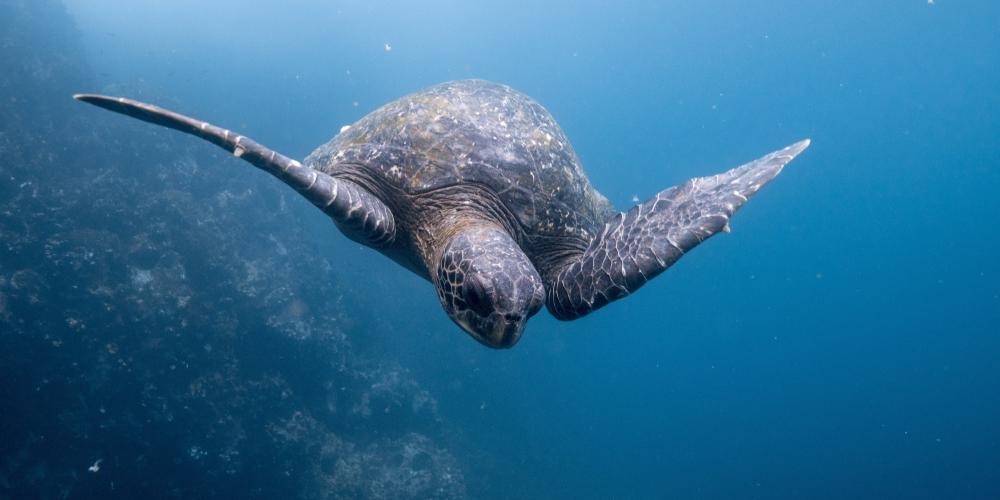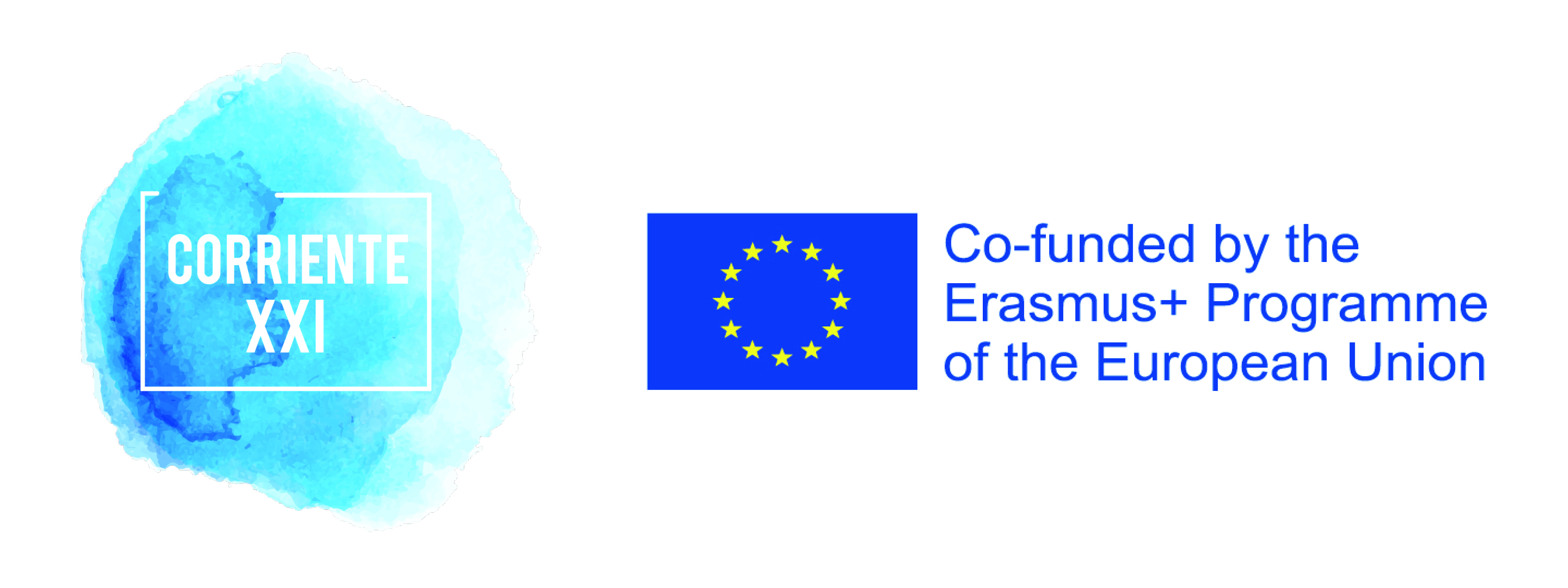
In 2019, CORRIENTE XXI, the Erasmus+ capacity building project was selected to receive EU funding for a three-year-period. “Moving towards innovative education for research-based and sustainable management of marine and freshwater ecosystems” is the project’s official name; ‘CORRIENTE’ is a reference of course to currents, and ‘XXI’ to the environmental issues aquatic ecosystems are facing in the 21st Century. We’re half-way through the project’s timeline, so we catch-up with dr Diana Di Nitto from the VUB’s biology department, and the project’s manager to find out more.
“Given the challenging circumstances we’re sort of on track!”, Diana explains. “Our kick-off event got postponed, and then cancelled because of COVID-19 of course. We were due to meet with all the partners on the Galapagos Islands in March 2020, but in the end we had to cancel that. Other travel in 2020-2021 had to be cancelled too. Instead we met online for the Kick-off, 2 workshops and a webinar between mid-June 2020 and April 2021. The preparatory stage has been finalised and we are now in the midst of the main work: developing the curriculum, and training the trainers.”
The project’s consortium consists of two EU partners (VUB, the project coordinator, and the Université de Bretagne Occidentale (UBO)), two partners in Ecuador (Escuela Superior Politécnica del Litoral (ESPOL) and Universidad Central del Ecuador (UCE)), and two in Peru (Universidad Peruana Cayetano Heredia (UPCH) and Universidad Nacional Mayor de San Marcos (UNMSM).
The project focusses on education and wants to address the environmental challenges related to the 21st Century facing the sustainable management of aquatic (marine and freshwater) ecosystems and how their resources are impacted on a national level but also in the transboundary context between Peru and Ecuador. CORRIENTE XXI wants to invest in all aspects of higher education curricula, and to improve them on the research-level, their international aspects, teaching methods, to help uplift the five Master programmes in Peru and Ecuador, but also to help the students out in terms of career opportunities. And all this while raising awareness on the importance of aquatic sciences and management of these ecosystems. Throughout, the team gets the support from a variety of associate partners, and links to existing programmes and courses where possible.
Train the trainers
All partners involved are leading a variety of workshops, dealing with topics such as ‘transferable skills’, ‘how to become a change agent in aquatic science’, ‘innovative pedagogical skills’, ‘modernisation of higher education institutions’ and ‘fieldwork as an educational approach for research-based Master programmes’. The project will culminate in a two-day conference in Peru in June 2022, to bring multidisciplinary scientists together along with a variety of stakeholders on a range of topics related to marine and freshwater ecosystems and their management. The hope is to organise the CORRIENTE XXI Summer School in February 2022, in El Ñuro in Peru, on the border with Ecuador. This ‘applied transboundary fieldwork’ will take place in the Peruvian Mangroves Natural Park where UPCH has a marine coastal station and will include 20 staff and 32 students from Ecuador and Peru. [continue reading below picture]
 Curriculum development
Curriculum development
A portfolio of competences was set up to collect data from stakeholders working in marine and freshwater ecosystem science and management in Peru and Ecuador. The idea was to look at skills needed on the labour market and to match these with those that the student needs to acquire at the end of their studies. The data was collected via surveys sent to employers, alumni, lecturers and students. After the data processing portfolios of competences and learning outcomes were drafted per partner to reflect scientific knowledge, know-how, transversal capacities, management and governance skills related to marine and freshwater ecosystems, among others. Alongside this a SPOC (Small Private Online Course) has been developed by UBO which gives an introduction on Dynamic Energy Budget theory for students in aquatic biological sciences, so they can develop research-based knowledge on this theory, but also on experimental aspects and theoretical developments in relation to applications for ecosystem management. The course is in English and Spanish, but especially English to promote internationalisation and improve proficiency. Training modules include active learning toolkits set up to align with the portfolio’s competences and learning outcomes. The three existing Master programmes in Peru and Ecuador will be improved and enhanced, and two new ones will be added in Ecuador (UCE/ESPOL).
COVID-19 impact on the project
The pandemic had one positive impact on the project because just like here in Europe, the universities in Peru and Ecuador were forced to move to online education. It meant that this side of the curriculum’s innovative changes were done. Diana explains: “Our working group meetings are done on a monthly basis and it means there is far more regular contact. The other benefit was for the associate partners in the project who were able to join all the meetings online. In the end, all the work went ahead as planned, bar one workshop on fieldwork practices. Working online isn’t without its drawbacks: meeting people for the first time online isn’t obvious; it’s harder to join in conversations when you don’t know each other very well. Also, part of the train the trainer work involved job shadowing of VUB and UBO staff by Peruvian and Ecuadorian colleagues; doing this online is really not a given.”
The implementation part is also tricky. When you aren’t there in person to sit in on classes, it’s hard to gauge how well it’s going, how students react, etc. They did notice the pandemic’s impact in Peru and Ecuador among students. There was government help in Ecuador in providing internet for students at home, but there were still drop-outs. The universities themselves also encountered issues. COVID-19 impacted them financially, especially in Ecuador where some lecturers on short-term contracts were laid off, and some who were involved in the project’s work sadly passed away due to COVID-19.
“The work has been full on, but it has been fun to meet all those involved in the project from across all of our partner institutions and organisations. It’s great to see their engagement and enthusiasm during the online workshops. We get such great feedback, and at the end of the day it’s about exchanging experiences and sharing our knowledge with each other. And I must add, you create a special kind of bond with those you meet online and it’s wonderful that these kinds of relationships can be forged digitally,” Diana adds.
More information:
Contact: dr Diana Di Nitto - diana.di.nitto@vub.be
The CORRIENTE XXI website: www.corrientexxi.com
Facebook page: https://www.facebook.com/Corriente21-102400531540508